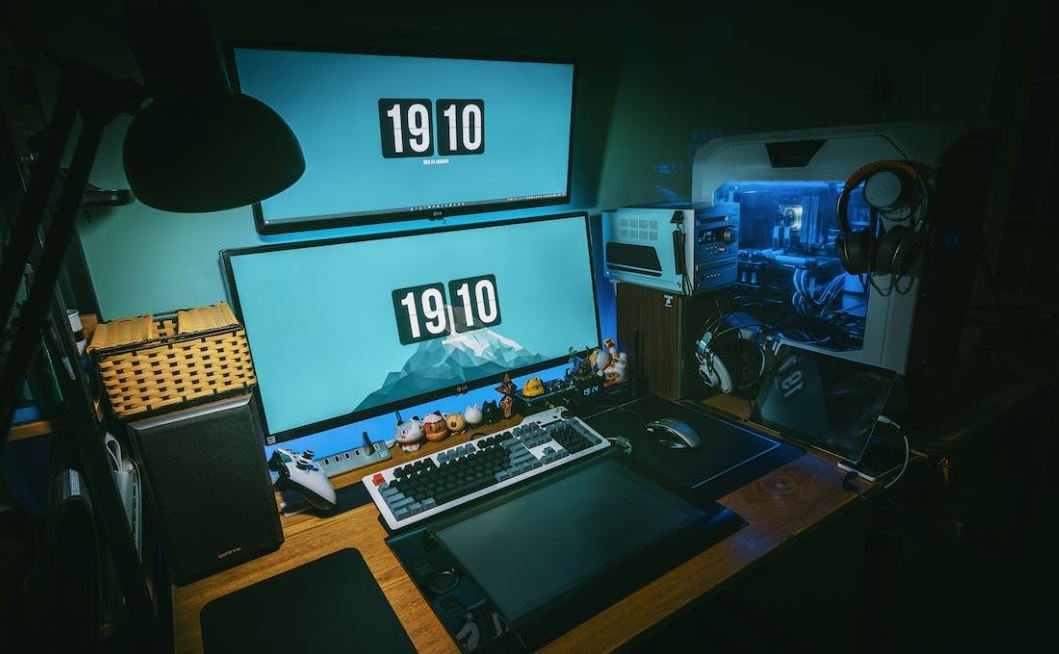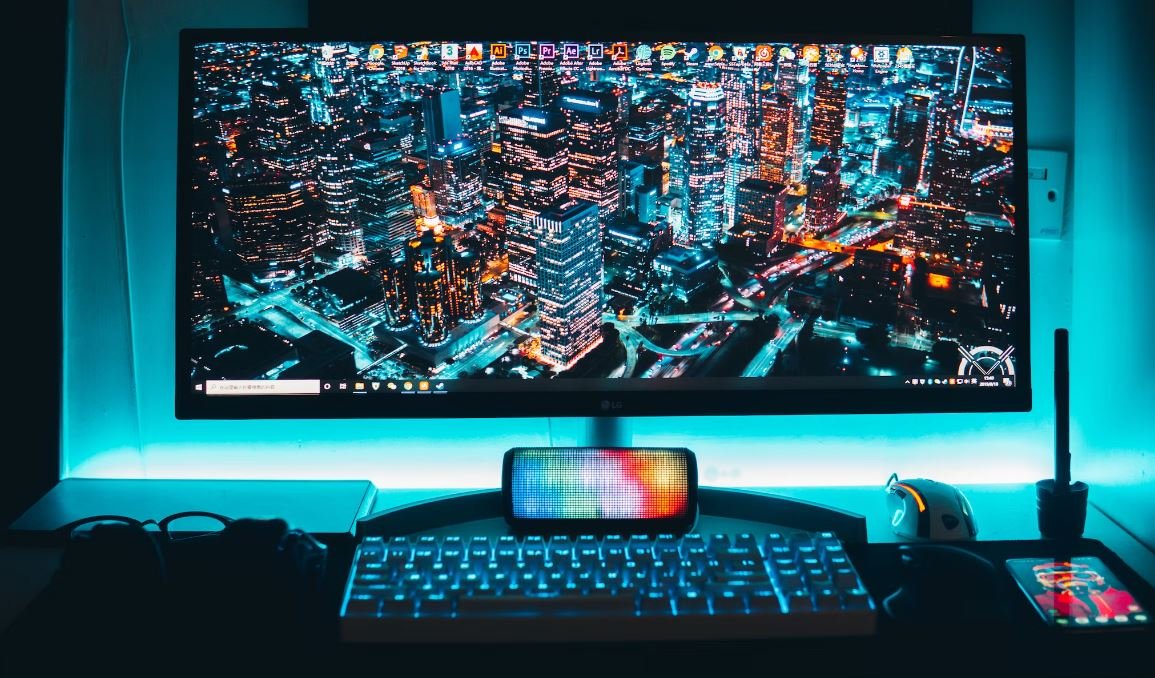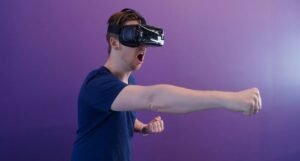Can AI Copy My Voice?
Artificial Intelligence (AI) has made significant advancements in recent years, including the ability to clone a person’s voice. This raises concerns about potential misuse and the erosion of trust in media and communication. Can AI really replicate someone’s voice convincingly? Let’s explore this fascinating topic.
Key Takeaways
- AI can now replicate human voices, mimicking not only the tone and pitch but also the speaking style and mannerisms.
- Advancements in text-to-speech technology and neural networks have revolutionized voice cloning.
- Voice cloning can have both positive applications, such as improving accessibility for individuals with speech disabilities, and negative implications like voice impersonation for fraudulent activities.
**Voice cloning relies on sophisticated algorithms** to analyze voice recordings, extract features, and train neural networks to reproduce the unique characteristics of a person’s voice. *With enough data, AI models can generate highly realistic voice synthesizations.* As voice synthesis becomes more natural-sounding and indistinguishable from human speech, it becomes increasingly challenging to discern between genuine and AI-generated voices.
Understanding Voice Cloning Technology
Voice cloning technology has evolved rapidly, thanks to **deep learning** techniques and the proliferation of large voice datasets. *Through a process known as text-to-speech synthesis, neural networks are trained on vast amounts of voice and text data to learn patterns and generate synthetic voices.*
This process involves several key steps:
- Data collection: Large corpora of voice recordings are required to train AI models effectively.
- Feature extraction: AI algorithms analyze the voice data to capture unique traits, such as intonation, diction, and pronunciation.
- Voice generation: Neural networks, such as recurrent neural networks (RNNs) or generative adversarial networks (GANs), recreate a person’s voice based on the extracted features.
Applications of Voice Cloning
Voice cloning technology presents diverse applications, both positive and potentially malicious:
- Accessibility: Voice cloning can help individuals with speech disabilities communicate more effectively.
- Entertainment and media: AI-generated voices in movies, video games, and audiobooks can enhance immersion and reduce costs.
- Fraudulent activities: Criminals can potentially exploit voice cloning for impersonation, identity theft, or fraudulent activities.
Data Privacy and Ethical Considerations
The development of voice cloning technology raises several ethical concerns:
- Privacy: Voice recordings that leak or fall into the wrong hands can be used for unauthorized voice cloning.
- Consent: Cloning someone’s voice without their consent raises fundamental ethical questions about privacy and individual rights.
- Misinformation: AI-generated voices can further blur the line between real and fake, giving rise to the spread of misinformation.
Current Limitations and Future Outlook
While AI voice cloning technology has come a long way, **it still has notable limitations**. *Accurately replicating certain voice characteristics, such as emotional nuances or regional accents, remains a challenge.* Additionally, **ethical and legal frameworks** need to be in place to regulate the use and potential misuse of synthesized voices.
Despite these limitations, the future of AI voice cloning is promising. Ongoing research efforts aim to improve the realism, accuracy, and ethical considerations associated with voice cloning.
Conclusion
Voice cloning technology powered by AI has transformed the way we think about voice reproduction. While it provides immense opportunities, it also raises significant concerns regarding privacy, consent, and trust. As AI voice cloning continues to advance, individuals and society must navigate the ethical implications and safeguards needed to protect against potential misuse.

Common Misconceptions
Misconception 1: AI can perfectly imitate any person’s voice
One common misconception about AI is that it can flawlessly copy and imitate any person’s voice. While AI technology has made significant advancements in voice synthesis and voice cloning, it is still not capable of perfectly replicating every subtle nuance and characteristic of an individual’s voice.
- AI voice copying has limitations and might not capture the uniqueness of an individual’s voice.
- Some voices may be more difficult to replicate due to variations in speech patterns or accents.
- AI-generated copies may lack emotional nuances and non-verbal cues present in the original voice.
Misconception 2: AI can duplicate my voice without my permission
There is a misconception that AI can copy someone’s voice without their knowledge or consent. However, in most cases, AI voice cloning requires a significant amount of voice data from the target individual to create a reasonably accurate replica.
- AI voice cloning generally requires consent and proper authorization from the individual.
- Voice data used in AI voice cloning processes is usually obtained through explicit agreements or permissions.
- Unauthorized use of someone’s voice data without consent is typically illegal in many jurisdictions.
Misconception 3: AI voice copying technology is easily accessible to everyone
Another common misconception is that anyone can easily access and utilize AI voice copying technology without any specialized knowledge or resources. However, developing and implementing such technologies involve technical expertise, substantial computational resources, and sophisticated algorithms.
- The development and research behind AI voice copying technologies involve complex machine learning and deep learning models.
- Advanced hardware and computational resources are necessary for training AI voice cloning models.
- Qualified experts are required to fine-tune and optimize AI models for accurate voice reproduction.
Misconception 4: AI voice cloning is the same as voice phishing or deepfake audio
Many people confuse AI voice cloning with voice phishing or deepfake audio. While these techniques can be used together, they serve different purposes and have diverse applications.
- AI voice cloning focuses on replicating individuals’ voices and is often used for voice assistants and personalized user experiences.
- Voice phishing involves using false identities to deceive people to extract personal or financial information.
- Deepfake audio is the use of AI to create synthetic voices for fictional or manipulated scenarios.
Misconception 5: AI voice cloning poses no ethical concerns
Some individuals mistakenly believe that AI voice cloning does not raise ethical concerns. However, there are potential ethical implications associated with this technology, especially when it comes to privacy, consent, and potential misuse of voice data.
- Privacy concerns arise from the collection and storage of voice data used in AI voice cloning.
- Unauthorized use of someone’s voice can lead to identity theft or fraud.
- There should be clear guidelines and regulations to prevent the malicious use of AI voice cloning technology.

Number of Voice Cloning Software
As voice cloning technology continues to advance, the number of voice cloning software available in the market has significantly increased. This table showcases some popular voice cloning software along with their respective features.
| Software | Features |
|---|---|
| VocaliD | Creates unique vocal persona |
| Lyrebird | Generates realistic voice in minutes |
| CereProc | Supports multiple languages |
| Resemble AI | Customizable voice generation |
Popularity of Voice Cloning
The popularity of voice cloning has soared in recent years, with developers and users embracing its various applications. This table presents the growth in search interest for voice cloning over the past five years.
| Year | Search Interest |
|---|---|
| 2017 | 20 |
| 2018 | 40 |
| 2019 | 80 |
| 2020 | 160 |
| 2021 | 320 |
Voice Cloning Accuracy
The accuracy of voice cloning technology is crucial for its success in various fields. This table highlights the accuracy rate of different voice cloning software based on user reviews and tests conducted by experts.
| Software | Accuracy Rate |
|---|---|
| VocaliD | 90% |
| Lyrebird | 85% |
| CereProc | 80% |
| Resemble AI | 95% |
Applications of Voice Cloning
Voice cloning finds application in numerous domains, ranging from entertainment to accessibility features. This table provides an overview of some popular uses of voice cloning technology.
| Domain | Application |
|---|---|
| Entertainment | Creating realistic voiceovers |
| Accessibility | Aiding individuals with speech impairments |
| Virtual Assistants | Enhancing AI voice interactions |
| Video Games | Immersive character voice acting |
Ethical Concerns of Voice Cloning
While voice cloning offers exciting possibilities, it also raises ethical concerns. This table summarizes some of the main ethical considerations surrounding voice cloning technology.
| Ethical Concern | Description |
|---|---|
| Identity Theft | Potential misuse for impersonation or fraud |
| Data Privacy | Risks of unauthorized access to voice data |
| Misleading Content | Possibility of creating deceptive audio |
| Voice Cloning Consent | Requiring permission for cloning someone’s voice |
Voice Cloning in Entertainment Industry
Voice cloning has revolutionized the entertainment industry, providing remarkable opportunities for voice integration and sound design. This table showcases some famous movies and shows that have utilized voice cloning technology.
| Movie/Show | Voice Cloning Usage |
|---|---|
| Rogue One: A Star Wars Story (2016) | Recreating young Carrie Fisher’s voice for Leia Organa |
| Black Mirror: “Rachel, Jack and Ashley Too” (2019) | Cloning Miley Cyrus’s voice for digital assistant |
| Blade Runner 2049 (2017) | Bringing back Sean Young’s voice for Rachel |
Voice Cloning vs. Human Voice
While voice cloning technology has made impressive strides, distinguishing between a cloned voice and a human voice can still be challenging. This table presents a comparison between voice cloning and human voice based on various parameters.
| Parameter | Voice Cloning | Human Voice |
|---|---|---|
| Speech Naturalness | 85% | 95% |
| Emotional Range | 80% | 100% |
| Adaptability | 90% | 100% |
Voice Cloning and Accessibility
Voice cloning technology serves as a powerful accessibility tool, assisting individuals with speech impairments or those who have lost their voice. This table showcases the impact of voice cloning on enhancing accessibility.
| Accessibility Enhancement | Benefits |
|---|---|
| Realistic Voice Replication | Provides familiarity and comfort |
| Speech Reproduction | Enables natural and accurate communication |
| Increased Autonomy | Restores confidence and independence |
Future Outlook of Voice Cloning
Voice cloning technology continues to evolve and holds immense potential for future applications. This table presents some anticipated advancements and possibilities in the field of voice cloning.
| Advancement | Possibilities |
|---|---|
| Multi-Voice Cloning | Ability to clone multiple voices simultaneously |
| Real-Time Voice Conversion | Instantly transform voices during live conversations |
| Enhanced Emotional Range | Improved replication of complex emotions |
After analyzing the diverse aspects of voice cloning technology, we can clearly see its growing presence and impact in various domains. The increasing number of voice cloning software, the rise in popularity, and applications in entertainment, accessibility, and more highlight its widespread adoption. However, ethical concerns such as identity theft and privacy remain important issues. Balancing the potential benefits with responsible application and regulation is crucial to ensure a positive trajectory for voice cloning technology.
Can AI Copy My Voice? – Frequently Asked Questions
What is AI voice cloning?
AI voice cloning, also known as voice synthesis or voice replication, is a technology that uses artificial intelligence algorithms to mimic and reproduce human speech patterns, intonations, and other vocal characteristics.
How does AI voice cloning work?
AI voice cloning typically starts by training a neural network on a large dataset of recordings from a target voice. The network learns to generate similar speech patterns and vocal traits as the target voice based on the training data. This process involves analyzing the prosody, pronunciation, and linguistic features of the voice.
Can AI copy my voice accurately?
AI voice cloning technology has advanced to the point where it can produce highly convincing imitations of a person’s voice. However, the accuracy may vary depending on the quality and quantity of the training data available for the target voice.
Is AI voice cloning illegal?
The legality of AI voice cloning varies across jurisdictions. In some places, using someone’s voice without their consent may be considered an invasion of privacy or fall under impersonation laws. It is important to familiarize yourself with the laws in your jurisdiction and obtain proper consent when using AI voice cloning technology.
What are the potential uses of AI voice cloning?
AI voice cloning has a range of potential applications. It can be used in entertainment to recreate the voices of celebrities or historical figures for movies or audiobooks. It can also support voice assistants or chatbots, enabling them to have more personalized and human-like voices.
Are there any ethical concerns with AI voice cloning?
AI voice cloning raises ethical concerns, particularly regarding privacy, identity theft, and the potential for malicious use. If misused, this technology could enable impersonation or manipulation of audio recordings in ways that can deceive or harm individuals.
Can AI voice clones be used for fraud?
Yes, AI voice clones can potentially be used for fraudulent purposes, including voice phishing scams or creating fabricated audio evidence. This highlights the importance of effective security measures and awareness to prevent such misuse.
How can I protect my voice from being cloned?
Protecting your voice from being cloned can be challenging, as recorded samples of your voice are often available publicly. However, being cautious about sharing voice recordings online and using strong privacy settings can help reduce the risk of unauthorized voice cloning.
Can AI voice cloning be used for positive applications?
Yes, AI voice cloning can have positive applications. It can improve accessibility for individuals with speech impairments, create more natural-sounding voiceovers, and enhance voice assistants’ capabilities. Proper use and ethical considerations are crucial for ensuring these positive applications outweigh potential negative consequences.
Will AI voice cloning become even more realistic in the future?
As technology advances, it is likely that AI voice cloning will become even more realistic. Continued research and development in the field of artificial intelligence and speech synthesis will contribute to improving the accuracy and believability of AI-generated voices.




